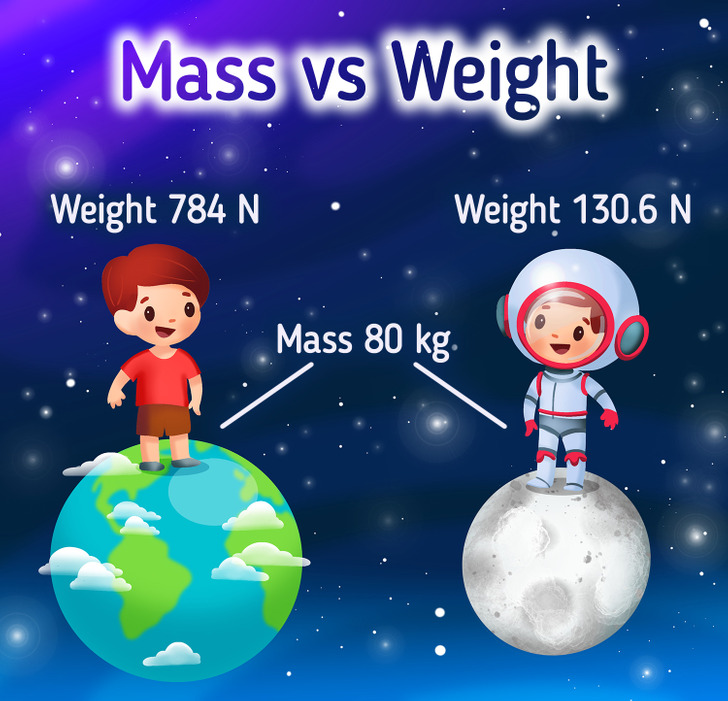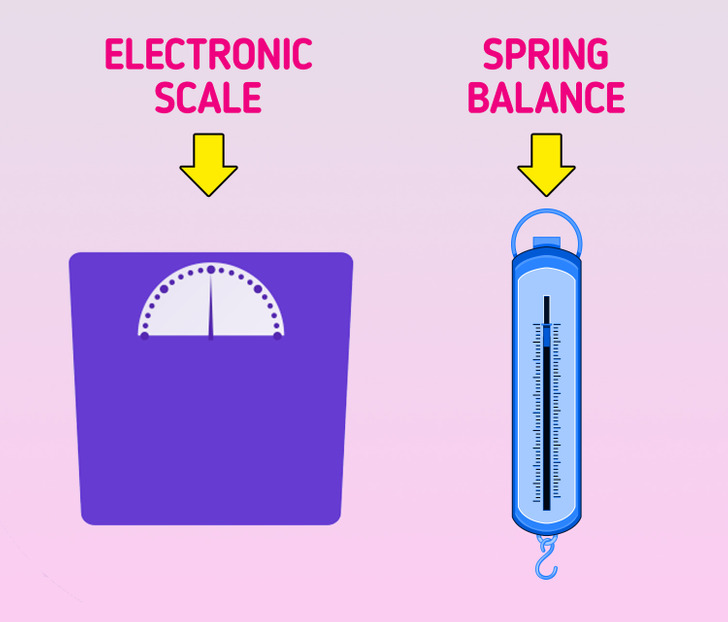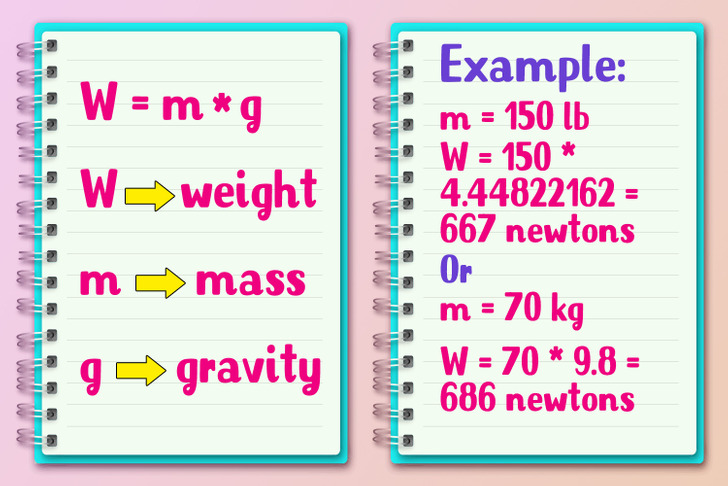What the Difference Between Mass and Weight Is
People often mix the words “mass” and “weight,” but they have very different meanings. Knowing some basic characteristics about these 2 physical quantities will help you avoid misusing these terms in everyday conversation. 5-Minute Crafts will help you to learn how to distinguish these 2 values.
The difference between mass and weight

- The weight is variable; the mass stays the same. The mass is a property of matter that shows how much matter is in an object and is the same everywhere, both here on Earth and on other planets. The weight is a force and depends on the effect of gravity.
- The weight can decrease or increase. Let’s say you’re in space; your mass will stay the same, but because gravity is weaker on the moon, your weight will decrease there.
- Weight can be zero; mass can’t be zero. Since the weight directly depends on the source of gravity, if there is no gravity pull, the weight can be zero. The mass, however, cannot be zero.
- The mass is a scalar value; the weight is a vector. This means that the mass has magnitude, but the weight has both magnitude and direction because gravity attracts it toward somewhere. The weight is variable since its direction goes to the center of the Earth or some other object with a gravitational force.
- We measure mass with an ordinary scale, and weight, using a spring balance. This means that we compare mass with a known standard, using instruments like, for example, a beam or an electronic balance. Weight is measured with spring balances.
- They have different units. The mass’s unit is the kilogram (or pound), while weight is measured in newtons.
The relationship between mass and weight
Even though they are different, the mass and the weight are related through a simple equation:
W = m * g
“W” is the weight, the mass is represented with an “m,” and gravity with a “g.” To find the mass, we calculate it like this: m = W / g.
Next time you step on a scale to measure your “weight,” remember that you are actually measuring your mass. If you want to use pounds to find your weight, remember that one pound is equal to 4.44822162 newtons. So, if you weigh 150 lb, use the following calculations: 150×4.44822162 = 667 newtons.
You can calculate your accurate weight by multiplying your mass value by 9.8 newtons because the force of gravity is 9.8 newtons per kilogram on Earth’s surface. So, for example, if your mass is 70 kilograms, your weight is 70 * 9.8 = 686 newtons.

